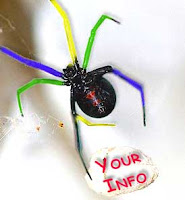The Pokémon Go Walk of Shame
When Pokémon Go was released, my geekiest developer had an awakening. In fact, he used his shoes in a manner unseen before and left his bat cave to venture into the real world of virtual rewards.
He ventured into Montreal, seeking acquisitions and fame. He discovered new leg muscles and walked all over the city late at night. He arrived late to the office every morning. But this time, from physical exhaustion - not his usual fatigue acquired from playing all night on his Uber gaming platform. He even met other hunters - giving him new hope for connecting with mortals.
Of course, I took a puff of this most addictive form of treasure hunt. But it was when I reached level 6 on July 22nd at 12:23pm, and upon lifting my head in our very hip tech neighborhood of the Mile End, that I observed a crowd of people engaged in Pokémon Go on their way to lunch (the picture). The zombification was real and palpable to those who had not been bitten. Then a feeling of shame came over me. I did not want to be accused of being a Mareep. I then opened the application in a manner that was discrete and concealed. The Pokémon Go had become an expression of personality weakness and blind conformism. Surely enough, the use of the application was dismissed dramatically in Montreal's ground zero of geekiness. By July 26th, Pokémon Go screens were rarely seen, and those engaged a week ago are now mocking and looking down upon those still using it. It was so yesterday - the shame of being a week-old late bloomer.
This is a fascinating tale of how "too much too fast" can lead to a dramatic failure. But it is so revealing of human nature. This need to collect, lead, and be on the bleeding edge of the latest thing demonstrates the recipe that drives us. Even the most savvy techies were caught in this plot to exploit a generation's emotional childhood attachment to the Pokémon brand as a viral accelerator. We don't mind being played, but the exposure was too great this time. We now know that we can be truly aware of what seduces us. We just don't like to be played and exposed for it. But more importantly, we demonstrated that we can reject it and remain in control. But I challenge that the visible fast speed of change fueled this rejection. We are still vulnerable to change that we can't notice - it creates an unseen new normal. That gives an older individual perspective and retrospective to see the danger lurking in the de facto acceptance and certainty of a younger generation. We need cross-generational communication to protect our humanity and rights from a deliberate and undetected change designed to take advantage of us. Not every innovation is delivered as rapidly as Pokémon Go for us to notice the absurdity of collective frenzy and blind buy-in. We conform and seek to be part of communities to have a voice amplified to protect our rights, desires, and sometimes our sense of entitlement. But in this case, if and when I decide to open Pokémon Go, I will paradoxically raise my head to avoid the walk of shame.



Comments